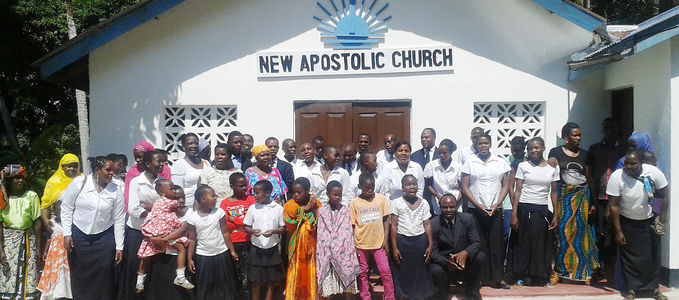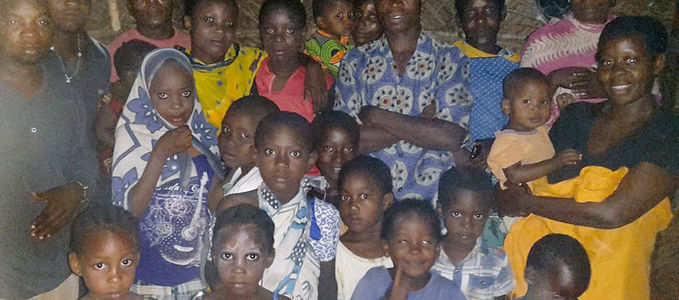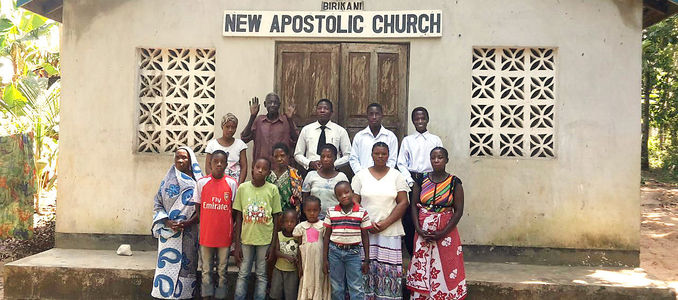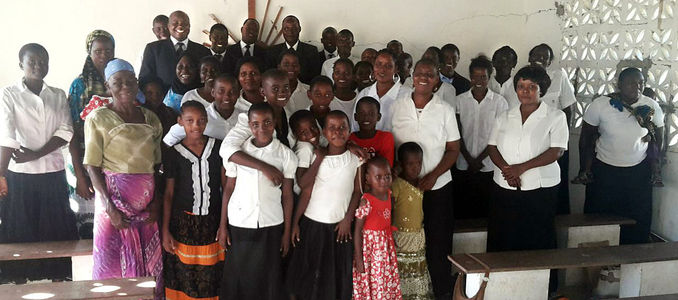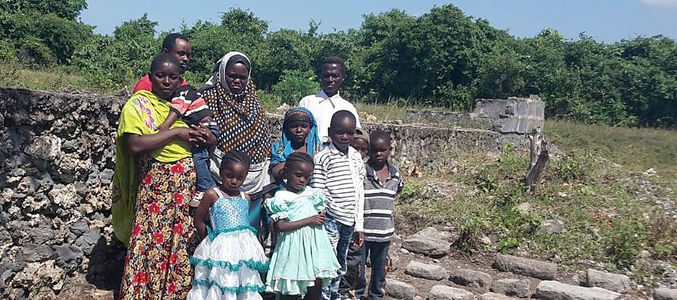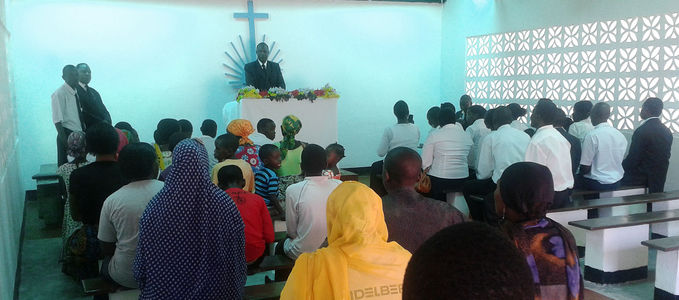
Zanzibar, an island of contrasts: exotic holiday destination on the one side and extreme poverty on the other. For the most part, the religions live together peacefully, but in some parts Christians are experiencing persecution. Following are impressions from the Chief Apostle’s recent visit there.
In the warm waters of the Indian Ocean just off the coast of east-central Africa lies a group of islands known for their beauty and exotic spices. The name exudes a fascination on people and draws more and more holiday-makers from all parts of the world. Unguja is the name of the main island and travel guides sing its praises: turquoise lagoons, primeval forest, and white sandy beaches—the makings of a perfect holiday.
More than half live below the poverty line
But there is also another side: many people are poor. The average income is 250 US dollars per year. More than half of the 1.1 million people live below the poverty line. Child mortality is about ten times as high as in North America or in Europe, and the overall life expectancy at 54 years is far below average.
Zanzibar is a semi-autonomous state with its own government and legal system, but under international law it is considered as part of Tanzania. Official languages are Swahili—or Kiunguja, as the dialect is called on the island—and English. There is also a lot of Arabic spoken. More than 99 percent of the population is Muslim. They are considered to be open toward other faiths and tolerant. Christians, Hindus, Jews, and followers of other religions can move freely on Zanzibar and practice their religion.
There for the last 30 years
Chief Apostle Jean-Luc Schneider was fascinated with the people. He visited the members there, had intensive discussions with them, and listened to them. In a circular to the Apostles on 21 April 2015 he wrote, “On Saturday, I held a meeting with the Apostles, and then we went to Zanzibar Island. There we met with members who live among a predominantly Muslim population, to strengthen and pray with them.”
The New Apostolic Church on Zanzibar is 32 years old. In 1983 Mzee Maliwa and his family moved from Dar es Salaam to Zanzibar. He was already New Apostolic. In December of the following year, Apostle Wilbert Vovak came to the island, founded a congregation, and sealed 125 believing people with the Holy Spirit.
Mgambo, the first congregation
Mgambo was the first congregation that was founded on Zanzibar. When the Chief Apostle was there, he discovered how the members live there and practice their faith. The congregation is fairly large. The church seats 120. The rector, who carries the Shepherd ministry, is assisted by two Evangelists, three Priests, and a Deacon. There is a 20-member choir, Sunday School, and a youth group. Sometimes the congregation even has visitors—tourists who are spending their holidays on the island. Sunday services begin at 10.30 a.m., Wednesday services at 4 p.m. The services are conducted in Swahili. In Mgambo, the Christians are able to practice their faith relatively undisturbed.
In other places, however, things are not that easy for the brothers and sisters. In Birikani, for example, shamans prayed in public and denounced all Christians in the vicinity. There are also attacks from other groups. The outer walls of our church in Bungi were torn down, forcing the members of the congregation to improvise. Now, when they come together for divine services, they wrap a plastic tarp around the benches to serve as kind of a screen. In some places, people are even afraid to go to church because of violence.
Eight congregations and full of joy
District Apostle Joseph Ekhuya, who has been responsible for the New Apostolic Church in Kenya, Tanzania, and Uganda since April 2015, speaks with a great deal of respect about his brothers and sisters on the Island of Zanzibar and is full of praise for them. Currently there are eight congregations with over a thousand Christians. Apostle Anyemike Igonda, Bishop Abraham Saunyama, and District Evangelist Pilusi Mnyashi are responsible for the pastoral care.
Chief Apostle Schneider returned from Zanzibar deeply impressed. He had met warm, loving, and very hospitable people. They live their faith and manage to draw strength and joy out of it despite having to cope with adverse conditions. He wants them to feel that they are part of the worldwide New Apostolic congregation. There is always a lot of room for them in his prayers, just like many other brothers and sisters who have to battle in life and in faith.






